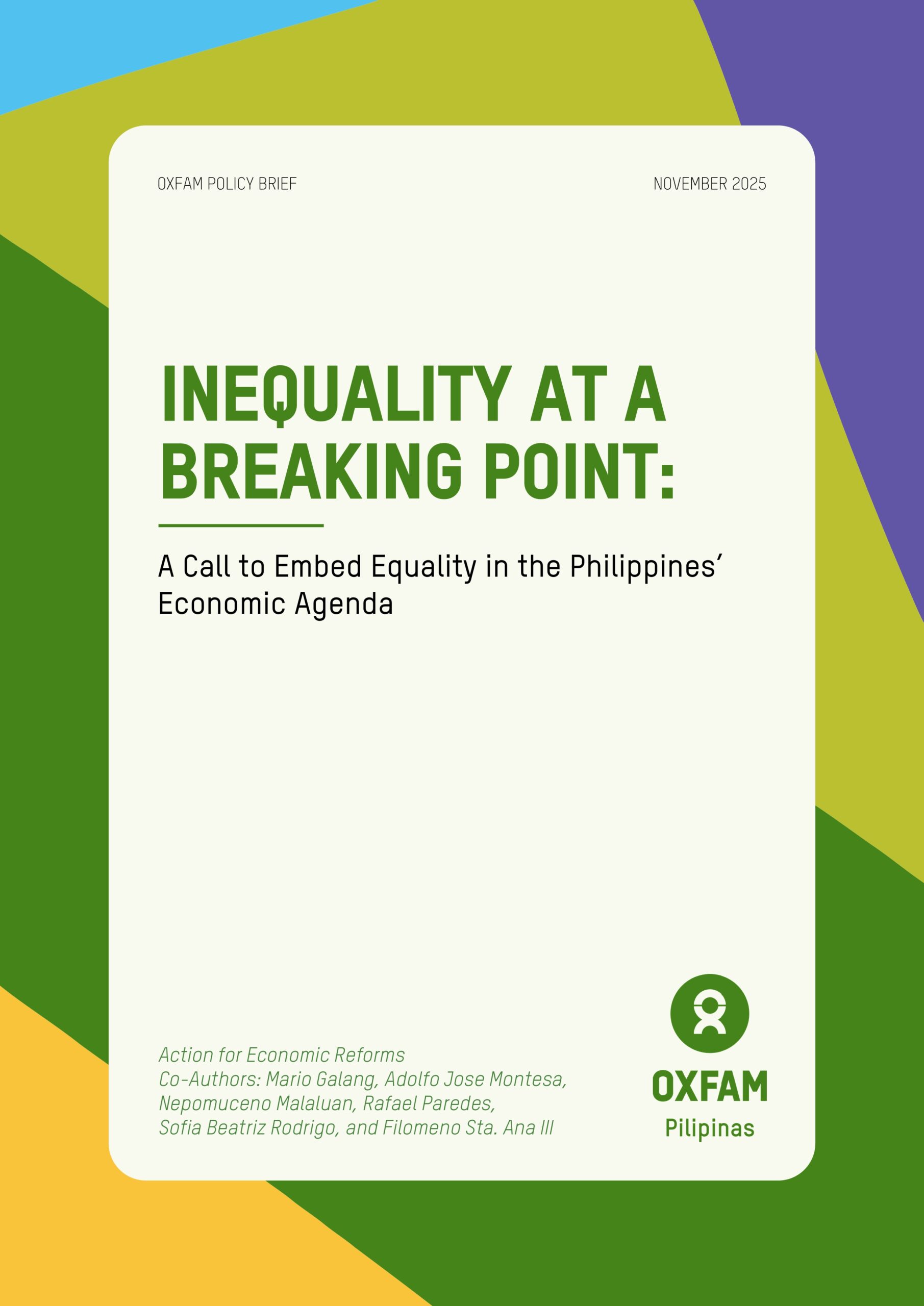- Version
- Download 34
- File Size 30.78 MB
- File Count 1
- Create Date November 18, 2025
- Last Updated November 18, 2025
This policy paper examines the persistent issue of inequality in the Philippines and underscores the urgency of integrating equality into the country’s economic agenda. Despite recent progress in reducing poverty and inequality, the Philippines remains one of the most unequal economies in ASEAN, with a Gini index of 40.7 in 2021 and significant disparities in wealth and income distribution.
The paper critiques the conventional thinking of having economic growth as a primary strategy for reducing inequality. While high growth has contributed to poverty reduction in East Asia, the Philippine experience highlights that growth alone is insufficient without equitable access to opportunities and strong redistributive policies. To supplement the standard indicators, the paper incorporates alternative inequality measures, such as the Palma ratio, which further reveals the entrenched disparities between the wealthy elite and the lower-income segments of society.
A human development approach is proposed, emphasizing the importance of addressing multidimensional inequality in income, education, health, and social mobility. The report identifies key structural barriers, including weak social protection systems, limited access to quality education and healthcare, and regional economic imbalances. It also highlights the exacerbating effects of global challenges such as climate change and automation on inequality.
